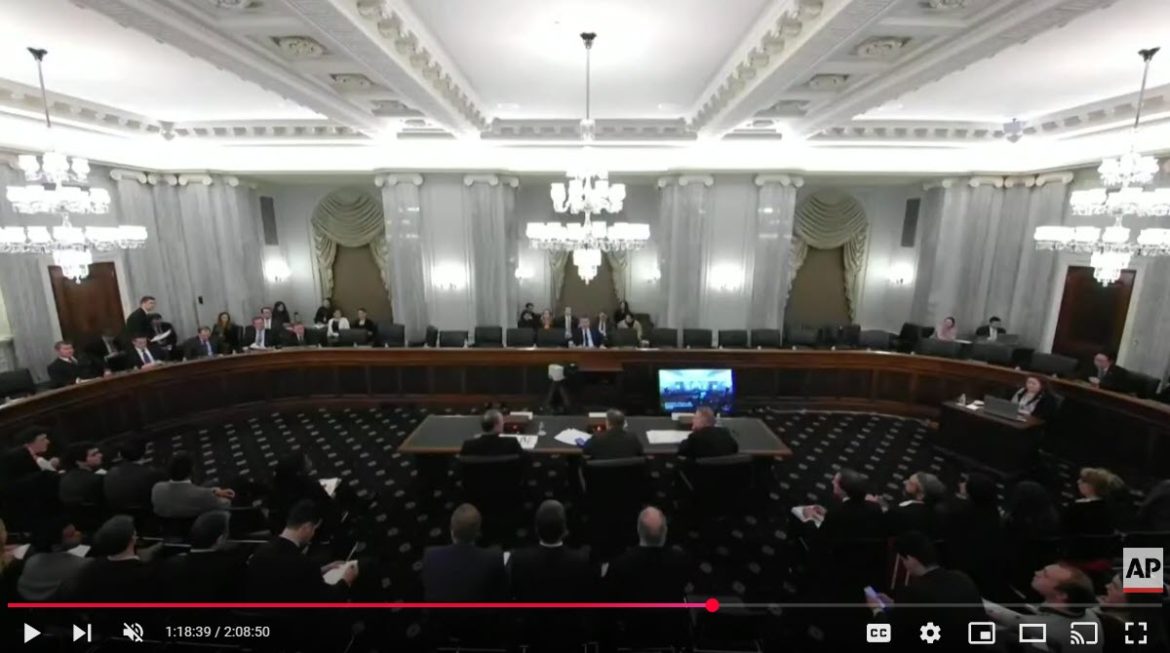The U.S. Senate Commerce, Science, and Transportation Committee convenes to evaluate the Panama Canal’s growing influence on American trade and national security. The hearings focus on concerns over rising canal fees, increasing congestion, and the potential impact of foreign influence on this critical trade route.
Senators hear testimony from maritime industry leaders, trade experts, and defense officials, all emphasizing the canal’s pivotal role in facilitating global commerce. The Panama Canal, which connects the Atlantic and Pacific Oceans, handles a significant volume of U.S. trade, particularly in agriculture, energy, and manufacturing. Witnesses stress the importance of ensuring fair access to the canal for American shippers and maintaining its efficiency to prevent disruptions in global supply chains.
One of the primary issues discussed is the recent increase in Panama Canal tolls. In January, the Panama Canal Authority announced a steep hike in transit fees, citing challenges such as reduced water levels caused by climate change and the need for additional infrastructure investments. U.S. shipping companies warn that these rising costs could hurt American exporters and raise prices for consumers. Lawmakers express concern that the fee increases disproportionately affect U.S. trade and call for greater transparency in the canal’s pricing policies.
Foreign influence in the operation and management of the canal is another pressing topic. Senators highlight concerns over China’s growing presence in Panama, including Chinese companies holding stakes in canal-related infrastructure projects. While Panama maintains control of the canal, the committee raises questions about the extent to which foreign investments could shape decision-making and potentially compromise U.S. strategic interests in the region.
National security experts testify on the canal’s critical role in U.S. military logistics. The canal is a vital passageway for U.S. naval operations, allowing rapid deployment between the Atlantic and Pacific theaters. Witnesses warn that any disruptions or vulnerabilities in the canal’s operations could pose risks to U.S. national security, particularly in light of rising geopolitical tensions with China.
The hearings also explore the impact of climate change on the canal’s operations. Droughts and reduced rainfall in Panama have strained the canal’s water supply, forcing restrictions on the size and number of ships transiting the waterway. Industry leaders urge the U.S. to engage with Panama in developing sustainable solutions, such as water conservation projects, to ensure the canal’s long-term viability.
Several lawmakers call for increased U.S.-Panama collaboration to address these challenges. Proposals include negotiating bilateral agreements to stabilize canal fees, bolstering U.S. investment in canal-related infrastructure, and supporting Panama’s efforts to mitigate climate-related risks. The committee emphasizes that safeguarding the canal’s accessibility and security is essential for protecting U.S. economic and strategic interests.
The hearings highlight the intertwined nature of global trade, environmental sustainability, and national security, underscoring the need for proactive measures to address emerging challenges. As the Senate committee continues its inquiry, lawmakers are expected to draft recommendations aimed at strengthening U.S. influence in the region and ensuring the canal remains a reliable gateway for international commerce.



